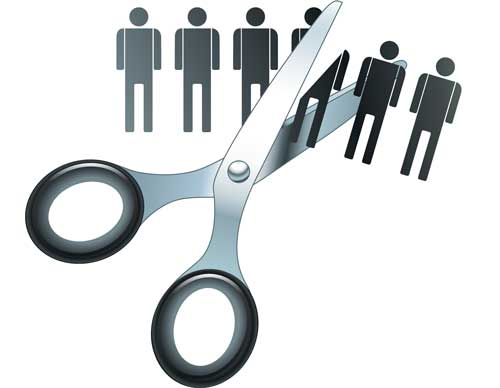Keeping the books
The sky’s the limit it seems, with many of the latest accounting software packages now hosted in the cloud. Patricia Moore reports on this trend as well as the other considerations when it time to upgrade your accounting system.
Accounting software has advanced enormously since those early spread sheets which provided little more than book-keeping and compliance. Today’s smart solutions encompass the broader business picture and enable a greater understanding of what’s really going on.
“The right software and the right advice can give you a better grip on your financial performance and the possibilities inherent in your business, and free up more time to do it,” says Xero product marketing manager, Richard Phillips.
Investing in a proven enterprise resource planning (ERP) system (effectively business software with accounting at the core) can help increase productivity, grow your business, connect with employees, customers and partners, and provide live visibility of your key financial indicators, thereby sharpening your competitive edge, says Charles Pludthura, head of marketing for Sage Business Solutions.
If you’re not currently reaping some, if not all, of those benefits it may well be time to start shopping for a better option.
“It’s easy to do the compliance stuff; it’s having information to run the business cost-effectively and grow it, that’s often the driver for moving up to a slightly larger system. The driver for many businesses is the need for good information,” says Accredo GM Tish Brindle.
“People are manipulating spread sheets to see what’s happening and there are all these little information silos because the core package isn’t going far enough and there’s a lot of manual work involved in pulling off reports.”
“Like all IT-related expenditure, you’re looking for the high performance and reliability forward-thinking SMEs rely on to increase profitability. Make sure the [accounting] system has at its core strong financial, operational and customer relationship management features and capabilities,” says Pludthura.
A solution that fits will only come from having a clear idea of the needs of the business; that’s the view of Catie Cotcher, general manager at Reckon New Zealand, which brings QuickBooks to the New Zealand market. “Is online access important? What machines and/or devices are being used and what features does the business actually require? They all need to be considered.”
Problem is, given the abundance of products on the market, getting it right isn’t always straightforward; phrases like ‘third generation’ and ‘feature rich’ can be confusing for the punter who’s simply after a new accounting system.
Advice from the experts invariably begins with ‘talk to your accountant’ followed by ‘look for something that is going to grow with the business’.
“Accountants are key influencers,” says Pludthura. “Their advice is critical in ensuring the solution can do the job required from a regulatory perspective as well as a technical one.”
However, while compatibility with the software used by a business’s accountant is a benefit, “the right product and the right fit for me’, is more important,” says Cotcher.
Brindle recommends looking five to seven years out. “The costs involved in changing and training staff and getting systems in place mean it’s not an exercise you want to be repeating in a few years. What’s the growth path and what’s the development cycle of the software you’re looking at? Is it still being upgraded or is what you see pretty much all you’re going to get?”
MYOB’s GM Julian Smith also advises thinking long-term. “Businesses often change quite remarkably so it’s important to look for a solution that will grow with you, or a provider that offers a development path for the life of your business.”
For many small businesses a solution that keeps you in touch with all essential business information – cashflow, debtors and payments, plus compliance requirements – will be ideal, says Smith. “If you’re an employer, get help with payroll. If you carry stock you’ll need to manage inventory. If you sell services you want to keep track of time. If you’re exporting and have staff based overseas, you’ll need to consider multi-currency payments and government requirements.”
Payroll and annual leave legislation is increasingly complex and what may seem like a cost-saving DIY approach can in the long run lead to costly errors, he says.
Hands on or hands off
For BankLink GM NZ, Richard Reese, the key when choosing accounting software is how involved in the business the owner or manager wants to be, and what their expectations are of their accountant. “It’s all very well to be starry-eyed about the systems you’d like to have, but what do you really need? What is critical to the delivery of your business and how involved do you want your accountant to be?”
Cotcher says they’re seeing a shift towards business owners wanting greater understanding of the profitability of their business, trends and growth, with the ability to track this information and perform ‘what if’ scenarios. “The focus is not just on the core business accounting but on the business solution and performance overall.”
The way you operate the business is another consideration, adds Smith. “Do you need the speed of the desktop to process transactions and move quickly between reports or are you seldom in the office and need the convenience of a cloud solution and 24-hour access to your business information?”
“Look for a strong local partner network,” says Pludthura. “The stability of the vendor is also important because you want to count on them being still around in five or ten years’ time. Focus on the vendor’s road map. Is the product well-positioned to capitalise on trends without compromising the quality of the solution?”
A checklist should also cover areas such as cost (upfront or monthly); the availability of free trials; initial training and ongoing support; upgrades (are these free or do they come at a cost?); data security and compatibility with your accountant’s software.
And it’s important to understand the terminology used says Phillips. “If you’re not into accounting-speak, can you still understand what’s in front of you?”
Cloud delivery
Cloud computing – an Internet delivered service – is one with which many people are still getting to grips (see Bill Bennett’s excellent piece in September’s NZBusiness). But interest is growing says Cotcher, as users discover the freedom of working anywhere, anytime and on multiple devices. “It also allows easy integration with accountants, book-keepers and advisers, streamlining business efficiencies.” It’s even attracting interest at government level, with confirmation at the end of August that the Government was taking steps towards the adoption of cloud computing, an announcement that had concerns raised around the security of information stored ‘in the cloud’.
It’s a powerful force for business, says Phillips, particularly in the area of accounting. “It’s creating opportunity, making people more productive, enabling mobility and freeing up time for the business of the business. IT costs are reduced as the more you can do from the cloud the more the only thing you need on your computer is a web browser.”
With cloud software there’s no need for a business to maintain its own server infrastructure; back ups are automatic and automatic daily bank feeds reduce the keying of data and show the real-time cashflow position, says Phillips. “The mobile Xero version enables invoices to be generated on the go and allows you to take photos of receipts and upload them.”
Like the automobile manufacturers, the computing industry is now working towards hybrid models. Currently in pilot and scheduled for release later this year AccountRightLive will give businesses the access and convenience of the Internet combined with the power and functionality of the desktop, says MYOB’s Smith. “As a next-generation cloud accounting service it offers anywhere access, a single set of accounts for multiple users to work on simultaneously, and automatic updates through subscription.”
Pain points
‘Pain’ is a word that crops up when you start asking about choosing accounting software; Accredo’s Brindle refers to the pain-points that push the move to new systems and Grant Harwood, sales director at accounting industry consultancy GlobalBizpro, talks about “the pain of change – along with the pain of that initial investment in better software – in order to make the ten year plan a smooth run towards growth and never have anything holding you back.”
Handling change management is one of the biggest issues, he says. “Everyone who’s going to be affected needs to be part of the early discussions, regardless of the size of the enterprise. “Saying ‘we’re putting in a new system, you’re going to love it’, doesn’t work. New software can produce huge benefits but the transition requires change and as a general rule people are resistant to it.”
Have the right processes in place and make sure the environment is set up before game day, says Harwood. “Everyone needs to be in on the plan, understand their piece of it and buy in. I’d love to be able to say how simple and beautiful the whole thing is but there are challenges in changing ERP.”
Linking accountants to data
While BankLink supplies a limited range of software options, their focus is on providing a tool which allows accountants to offer a more comprehensive range of services to their business clients. “We’re a productivity tool enabling an accounting practice to do the vast bulk of their compliance work for business clients, cost-effectively and efficiently, and have access to daily data for their clients,” says Richard Reese. “It’s a solution that works well for business owners, allowing them to work in or on the business while their accountant services their accounting requirements and provides the financial reporting.”
Tax doesn’t go away, he says. “We would argue that for a sole trader or small business owner, letting their accountant take care of it allows them more time to work in the business or spend time with their family.”
People don’t get into business to do the books, says MYOB’s Smith. “The role of great accounting software is to make business life easier. With the right software a business owner can also become a more proficient business manager. In competitive or difficult times, when quick decisions are necessary, it’s important to have the right information at your fingertips.”
Patricia Moore is an Auckland-based freelance writer. Email [email protected]
Case study one:Gathering Clouds
A lot of business owners will relate to Marlene Wright’s experience with accounting software. In 2008 she, and husband Steve, bought Pukekohe-based Franklin Aluminium and needed to update the accounting system. They opted for an off-the-shelf product, designed they felt, to meet all their requirements. Unfortunately, says Wright, that wasn’t the case.
“I just pulled my hair out, absolutely pulled my hair out – then went back to doing it all manually.”
Engine Room chartered accountant Margaret Holmes came to the rescue, recommending Xero. “We knew that with a rapidly growing business they needed to be able to see how the business was going on at least a weekly, if not daily, basis. It was important the system was quick to learn and easy to use and Xero gave the additional benefit that, as their accountants, we could be totally connected with their business performance.”
Holmes says for small businesses the cost of maintaining internal computer systems can be out of proportion to the size and needs of the business and owners often struggle with installing upgrades.
“We also know that most businesses with desktop or server based solutions are not making regular backups of their data.” The whole business resides on a laptop or desktop that is at risk of damage or theft, she says.
“We really like Xero because we trust the quality of their security and daily backups.
As well as book-keeping and compliance, Marlene Wright has made managing the company’s payroll more efficient by linking it into Xero. She also keeps herself updated on new features as they’re made available by Xero, using those that improve the flow of work. It has made a huge difference to the business operation, she says. “It’s freed me up and I can now spend more time quoting and bringing in new business.”
She doesn’t know a lot about the cloud – or indeed where her information is stored (it’s actually in Texas with Rackspace says Xero) – adding the anytime, anywhere aspects are a plus.
“We were at a conference in the Bay of Islands recently and I took my laptop and was able to log on every morning and reconcile the books,” she says.
And, while there are no prizes for choosing an accounting system, Wright believes the business efficiencies enabled by Xero contributed in no small way to Franklin Aluminium being named winner of the 2012 Franklin Best in Business Supreme Award.
Case study two: A vital link
Supply Chain Solutions decided to upgrade their accounting software when lack of flexibility with their existing system became an issue. General manager Philip Walsh says they were with “a quite rigid off-the-shelf solution” when they began exploring the alternatives available.
Eventually the decision was made to go with GlobalBizpro. “They provided a flexible solution, a great back-end database our IT boys can do some magic with and they spent a lot of time understanding our business and what we required.”
The MYOB EXO system was installed comparatively recently but Walsh says it’s already proving its worth. “We deal heavily in freight and where there’s freight there are a lot of transactions between the various partners. What the system is going to enable us to do is track a consignment level and check profitability regularly, at a very detailed level, rather than the high levels we previously had to put up with. It’s also a great reconcile tool and we’re better able to see where the profit in the business is being driven from.”
He’s keen to add new features and says there are a lot he’s interested in. “The payroll system will be the next one brought on board.”
The level of support and training is excellent, says Walsh. The package entitled Supply Chain Solutions to a number of hours with consultants, plus free, class-based training in related areas they’ve gone into.
Supply Chain Solutions also has an agreement with GlobalBizpro that sees them on-selling MYOB EXO to their own clients. Walsh says it’s about consolidated business intelligence. “We know EXO and by having it under the one umbrella we can link our customer’s accounting package to our warehousing package with ease. We are all able to do things more intelligently.”
Regardless of the size of the enterprise, Walsh says it’s essential the accounting software provider you’re dealing with takes the time to really understand your business; “Someone who’s willing to go into the detail, not just go, ‘Yeah, it’ll be right’. That’s where Jo at GlobalBizpro was fantastic. We knew we had a resource in her we could talk to.”
And, he says, make sure everything’s in place to do the change. “Don’t jump blindly in thinking it will happen in five minutes. Do the groundwork beforehand and make sure the data’s ready to go. Talk to your consultant about the best way to approach it.”

![Keeping the books Smartphone-connectivity-best-concept-[Converted]](https://nzbusiness.co.nz/wp-content/uploads/2016/06/Smartphone-connectivity-best-concept-Converted-150x150.jpg)



